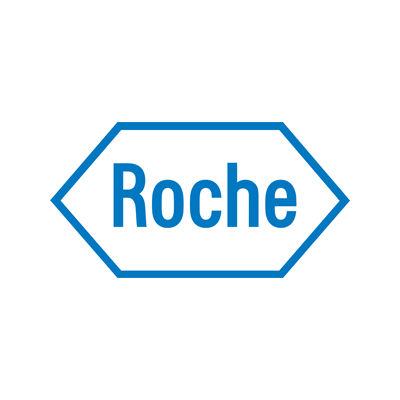预约演示
更新于:2025-07-15
Tifuvirtide
更新于:2025-07-15
概要
基本信息
在研机构- |
最高研发阶段终止临床2期 |
首次获批日期- |
最高研发阶段(中国)- |
特殊审评- |
登录后查看时间轴
结构/序列
Sequence Code 6345

来源: *****
关联
1
项与 Tifuvirtide 相关的临床试验NCT00048217
A Rollover Study to Provide Chronic T-1249 to Patients Who Completed Study T1249-102
Patients who complete study T1249-102 (must be currently failing a T-20 containing regimen to participate in this study) will receive T-1249 at a dose of 200mg daily in combination with a background antiretroviral regimen for 96 weeks. Only patients that participated in study T1249-102 can participate in study T1249-105.
开始日期- |
申办/合作机构 |
100 项与 Tifuvirtide 相关的临床结果
登录后查看更多信息
100 项与 Tifuvirtide 相关的转化医学
登录后查看更多信息
100 项与 Tifuvirtide 相关的专利(医药)
登录后查看更多信息
60
项与 Tifuvirtide 相关的文献(医药)2018-04-01·The Journal of biological chemistry2区 · 生物学
Exceptional potency and structural basis of a T1249-derived lipopeptide fusion inhibitor against HIV-1, HIV-2, and simian immunodeficiency virus
2区 · 生物学
Article
作者: Zhu, Yuanmei ; Cui, Sheng ; Zhang, Xiujuan ; Wang, Xinquan ; Chong, Huihui ; Ding, Xiaohui ; He, Jinsheng ; He, Yuxian
Enfuvirtide (T20) is the only viral fusion inhibitor approved for clinical use, but it has relatively weak anti-HIV activity and easily induces drug resistance. In succession to T20, T1249 has been designed as a 39-mer peptide composed of amino acid sequences derived from HIV-1, HIV-2, and simian immunodeficiency virus (SIV); however, its development has been suspended due to formulation difficulties. We recently developed a T20-based lipopeptide (LP-40) showing greatly improved pharmaceutical properties. Here, we generated a T1249-based lipopeptide, termed LP-46, by replacing its C-terminal tryptophan-rich sequence with fatty acid. As compared with T20, T1249, and LP-40, the truncated LP-46 (31-mer) had dramatically increased activities in inhibiting a large panel of HIV-1 subtypes, with IC50 values approaching low picomolar concentrations. Also, LP-46 was an exceptionally potent inhibitor against HIV-2, SIV, and T20-resistant variants, and it displayed obvious synergistic effects with LP-40. Furthermore, we showed that LP-46 had increased helical stability and binding affinity with the target site. The crystal structure of LP-46 in complex with a target surrogate revealed its critical binding motifs underlying the mechanism of action. Interestingly, it was found that the introduced pocket-binding domain in LP-46 did not interact with the gp41 pocket as expected; instead, it adopted a mode similar to that of LP-40. Therefore, our studies have provided an exceptionally potent and broad fusion inhibitor for developing new anti-HIV drugs, which can also serve as a tool to exploit the mechanisms of viral fusion and inhibition.
2017-09-01·Biophysical chemistry4区 · 生物学
Molecular dynamics simulations of T-2410 and T-2429 HIV fusion inhibitors interacting with model membranes: Insight into peptide behavior, structure and dynamics
4区 · 生物学
Article
作者: Mavioso, I C V C ; Martins do Canto, A M T ; Palace Carvalho, A J ; de Andrade, V C R
T-2410 and T-2429 are HIV fusion inhibitor peptides (FI) designed to present a higher efficiency even against HIV strains that developed resistance against other FIs. Similar peptides were shown to interact with model membranes both in the liquid disordered phase and in the liquid ordered state. Those results indicated that such interaction is important to function and could be correlated with their effectiveness. Extensive molecular dynamics simulations were carried out to investigate the interactions between both T-2410 and T-2429 with bilayers of pure 1-palmitoyl-2-oleoyl-phosphatidylcholine (POPC) and a mixture of POPC/cholesterol (Chol) (1:1). It was observed that both peptides interact strongly with both membrane systems, especially with the POPC/Chol systems, where these peptides show the highest number of H-bonds observed so far. T-2410 and T-2429 showed higher extent of interaction with bilayers when compared to T-20 or T-1249 in previous studies. This is most notable in POPC/Chol membranes where, although able to form H-bonds with Chol, they do so to a lesser extent than T-1249 does, the latter being the only FI peptide so far that was observed to form H-bonds with Chol. This behavior suggests that interaction of FI peptides with rigid Chol rich membranes may not be as dependent from peptide/Chol H-bond formation as previous results of T-1249 behavior led to believe. As in other similar peptides, the higher ability to interact with membranes shown by T-2410 and T2429 is probably correlated with its higher inhibitory efficiency.
2016-06-01·Drug delivery and translational research3区 · 医学
Sustained release of the candidate antiretroviral peptides T-1249 and JNJ54310516-AFP from a rod insert vaginal ring
3区 · 医学
Article
作者: van Roey, Jens ; O'Hara, Marc ; Malcolm, R Karl ; Clarke, Aileen ; Amssoms, Katie ; Pille, Geert ; Murphy, Diarmaid J
Administration of biomacromolecular drugs in effective quantities from conventional vaginal rings is hampered by poor drug permeability in the polymers from which rings are commonly constructed. Here, we report the formulation development and testing of rod insert rings for sustained release of the candidate antiretroviral peptides T-1249 and JNJ54310516-AFP (JNJ peptide), both of which have potential as HIV microbicides. Rod inserts were prepared comprising antiviral peptides T-1249 or JNJ peptide in combination with a hydrophilic excipient (sodium chloride, sodium glutamate, lactose or zinc acetate) dispersed at different loadings within a medical grade silicone elastomer. The inserts were tested for weight change and swelling when immersed in simulated vaginal fluid (SVF). Dye migration into the inserts was also assessed visually over 28 days. In vitro release of T-1249 and JNJ peptide from rings containing various insert types was tested. Weight change and degree of swelling of rods immersed in SVF was dependent on the type and concentration of excipient present. The rods displayed the following rank order in terms of weight change: sodium glutamate > zinc acetate ≈ sodium chloride > lactose. The weight change and degree of swelling of the inserts did not correlate with the level of dye uptake observed. In vitro release of T-1249 was improved through addition of lactose, sodium chloride and sodium glutamate, while release of JNJ peptide was improved through addition of sodium chloride or sodium glutamate. Sustained release of hydrophobic peptides can be achieved using a rod insert ring design formulated to include a hydrophilic excipient. Release rates were dependent upon the type of excipient used. The degree of release improvement with different inserts partially reflects their ability to imbibe surrounding fluid and swell in aqueous environments.
100 项与 Tifuvirtide 相关的药物交易
登录后查看更多信息
外链
| KEGG | Wiki | ATC | Drug Bank |
|---|---|---|---|
| - | - | - |
研发状态
10 条进展最快的记录, 后查看更多信息
登录
| 适应症 | 最高研发状态 | 国家/地区 | 公司 | 日期 |
|---|---|---|---|---|
| HIV感染 | 临床2期 | 美国 | 2002-10-30 |
登录后查看更多信息
临床结果
临床结果
适应症
分期
评价
查看全部结果
| 研究 | 分期 | 人群特征 | 评价人数 | 分组 | 结果 | 评价 | 发布日期 |
|---|
No Data | |||||||
登录后查看更多信息
转化医学
使用我们的转化医学数据加速您的研究。
登录
或

药物交易
使用我们的药物交易数据加速您的研究。
登录
或

核心专利
使用我们的核心专利数据促进您的研究。
登录
或

临床分析
紧跟全球注册中心的最新临床试验。
登录
或

批准
利用最新的监管批准信息加速您的研究。
登录
或

生物类似药
生物类似药在不同国家/地区的竞争态势。请注意临床1/2期并入临床2期,临床2/3期并入临床3期
登录
或

特殊审评
只需点击几下即可了解关键药物信息。
登录
或

生物医药百科问答
全新生物医药AI Agent 覆盖科研全链路,让突破性发现快人一步
立即开始免费试用!
智慧芽新药情报库是智慧芽专为生命科学人士构建的基于AI的创新药情报平台,助您全方位提升您的研发与决策效率。
立即开始数据试用!
智慧芽新药库数据也通过智慧芽数据服务平台,以API或者数据包形式对外开放,助您更加充分利用智慧芽新药情报信息。
生物序列数据库
生物药研发创新
免费使用
化学结构数据库
小分子化药研发创新
免费使用


